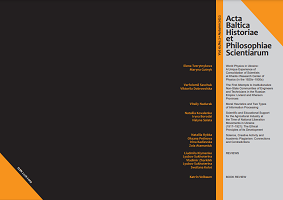Moral Heuristics and Two Types of Information Processing
Moral Heuristics and Two Types of Information Processing
Author(s): Vitaliy NadurakSubject(s): Epistemology, Ethics / Practical Philosophy, Philosophy of Science
Published by: Tallinna Tehnikaülikooli õiguse instituut
Keywords: dual-process theory; heuristics; intuition; moral heuristics; Type 1 processing; Type 2 processing;
Summary/Abstract: The purpose of this paper is to clarify the relationship between moral heuristics and two types of information processing. To achieve this goal, moral heuristics will be considered in the context of a dual-process theory. Type 1 processes (deliberate) are being defined as consciously controlled and Type 2 processes (intuitive) as those that occur without conscious control. Heuristics are not one of the types of information processing, but a method or procedure that simplifies information processing for decision-makers. This simplification can be achieved both in deliberate and intuitive ways. Therefore, heuristics can operate at the different levels of the information processing. The level at which heuristics work depends on the heuristic itself, the person (their experience, cognitive qualities, etc.), environment, and problem that needs to be solved.
Journal: Acta Baltica Historiae et Philosophiae Scientiarum
- Issue Year: 10/2022
- Issue No: 2
- Page Range: 46-62
- Page Count: 17
- Language: English

